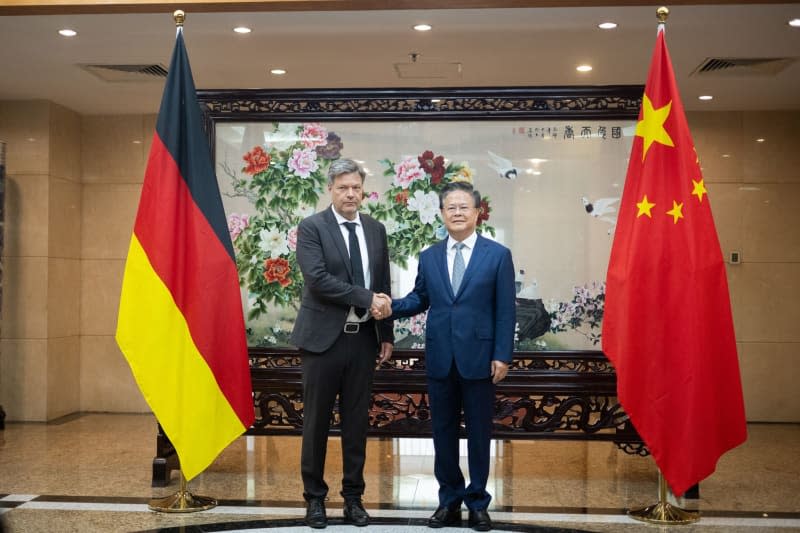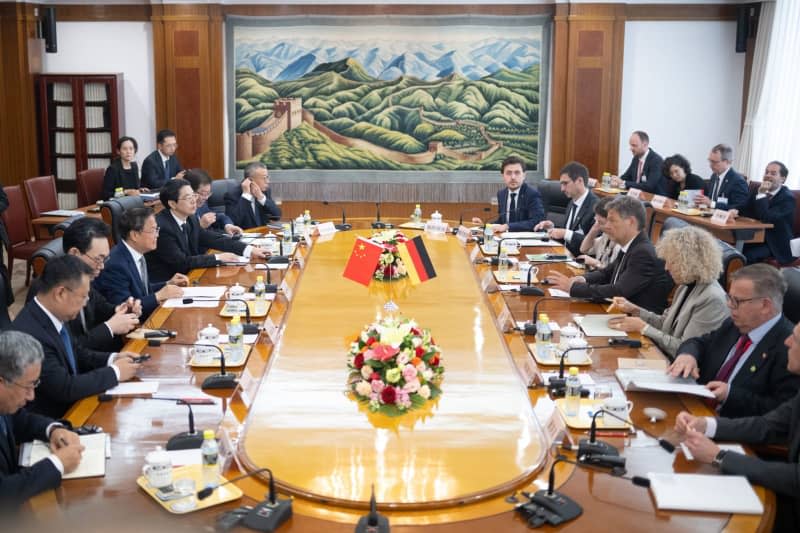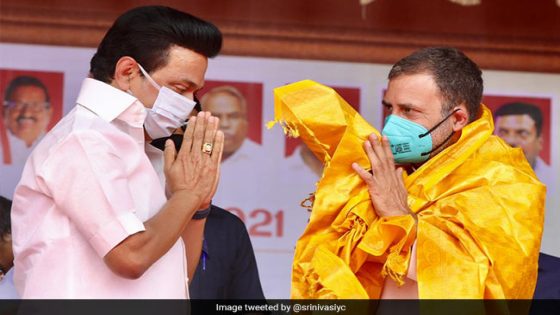German Vice Chancellor Robert Habeck has again warned the Chinese government of the economic consequences of its support for Russia in the war against Ukraine.
German and European security interests are directly affected by Russia’s war against Ukraine, Habeck, who also serves as Germany’s economy minister, said on Saturday in Beijing at a meeting with Chinese government representatives on climate issues.
Habeck was echoing similar comments he made on Friday.
The Chinese side was led by Habeck’s counterpart, Zheng Shanjie, the chairman of the powerful National Development and Reform Commission (NDRC). The authority is tasked with steering the development of the Chinese economy.
“We would proceed differently and certainly not quite as hard when analysing where we have dependencies on raw materials and technical goods if this war or China’s support for Russia in this war did not exist,” Habeck emphasized.
Things could not be separated, he added. “Our relationship, our direct relationship, has already been negatively affected.”
In the trade dispute over tariffs on cheap Chinese electric cars, Habeck called on the Chinese side to take the European Commission’s findings seriously.
The Brussels authority accuses the Chinese government of unfair subsidies and has threatened to impose high tariffs. China retaliated by announcing an anti-dumping investigation into imported products from the European Union, involving pork and by-products.
However, it was only on Thursday that China accused the European Commission of asking far too detailed and far-reaching questions in the subsidy investigation.
Habeck warned against trade barriers and the sealing off of markets, but also against unfair competition with state favouritism towards companies. Neither Germany nor China could have any interest in this, he said.
Habeck emphasized that the threatened EU tariffs were not punitive tariffs like those imposed by the United States, Brazil or Turkey. Rather, they should ensure a level playing field, he said.
“This is an equalization of the advantages granted and that is why it is important to first take the opportunity provided by this report and talk about it, negotiate about it,” said Habeck. This could either lead to a different result or a different assessment or even a change in course.
“Otherwise, it will certainly not be possible to prevent these countervailing duties from coming into force in order to safeguard common market access,” Habeck said.
Zheng, on the other hand, called Europe’s approach “unacceptable.” In the long term, it would reduce the prosperity of European consumers and harm the development of the European automotive industry, he said, adding that it is also not in line with efforts to reduce greenhouse gases.
The technical lead of Chinese car manufacturers is hard-earned and not the result of subsidies, said Zheng. His country also exports only 12.5% of its electric cars and sells them abroad at a higher price than at home.
Zheng called on Germany to show leadership and for the Berlin government to correct the wrong European approach.







Source Agencies


